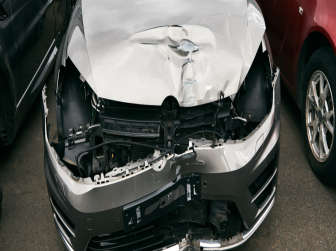South Africa has experienced several floods over the past few years, which means especially at this time of year you simply can’t rule out the possibility of flooded roads. Floodwaters can cause serious damage to your car, so where possible it’s best to avoid driving through deep waters.
However, sometimes you have no choice, or you underestimate the depth of the water. If you drive through deep water and you suspect your car has been damaged, get your vehicle checked by a mechanic as soon as possible. Some of the damage will be easy to see, but some of it would be quite hidden.

- If you suspect your engine was submerged, immediately stop the vehicle to prevent water from circulating through the engine block, as this can cause serious damage to an engine. Has the car towed to a mechanic? In a worst-case scenario, it could mean your engine would have to be rebuilt.
- Check your engine’s dipstick to see if water has entered the engine incorrectly. If you notice that your engine oil looks milky or has been more liquidated, then there is a high possibility that water has circulated through the engine. A mechanic should be able to assess whether the engine is worth a repair.
- Remove your air filter and check if it’s wet. If the air filter is wet, it should either be replaced or left in the sun to dry-out.
- Brake lines may also be affected by water. The brake pedal might begin to feel soft and it would require more braking effort for your car to stop. Most automobile maintenance specialists will be able to check your brake fluid levels and should also bleed the brakes at the same time.
- The battery terminals should be disconnected to prevent the battery from shorting-out and possibly damaging other expensive electronics in the vehicle.
- If water has entered the interior of the vehicle, remove the carpets to dry in sunlight, and try to vacuum or soak up most of the water. Buy car fragrancing products to help eliminate the damp water smell completely from the vehicle’s interior. Also look for dehumidifier blocks which you can keep in your car, to help absorb the extra humidity in your car.
Ideally, if you suspect your car’s engine has suffered water damage, you should have a specialist or a mechanic check the vehicle.
The safest thing to do is to completely avoid driving through deep water. Not only could you save your car, but you could save your life.

Comprehensive Car Insurance might cover some water damage, but it depends on your insurance provider and the terms and conditions of your policy. Generally, a complete engine rebuild won’t be insured by your insurance provider. Contact MotorHappy today so our insurance agents can help you find the best possible insurance provider for your budget and your needs.
Spark plugs: What they are and why they’re important
Top tips on how to entertain kids on long car rides


